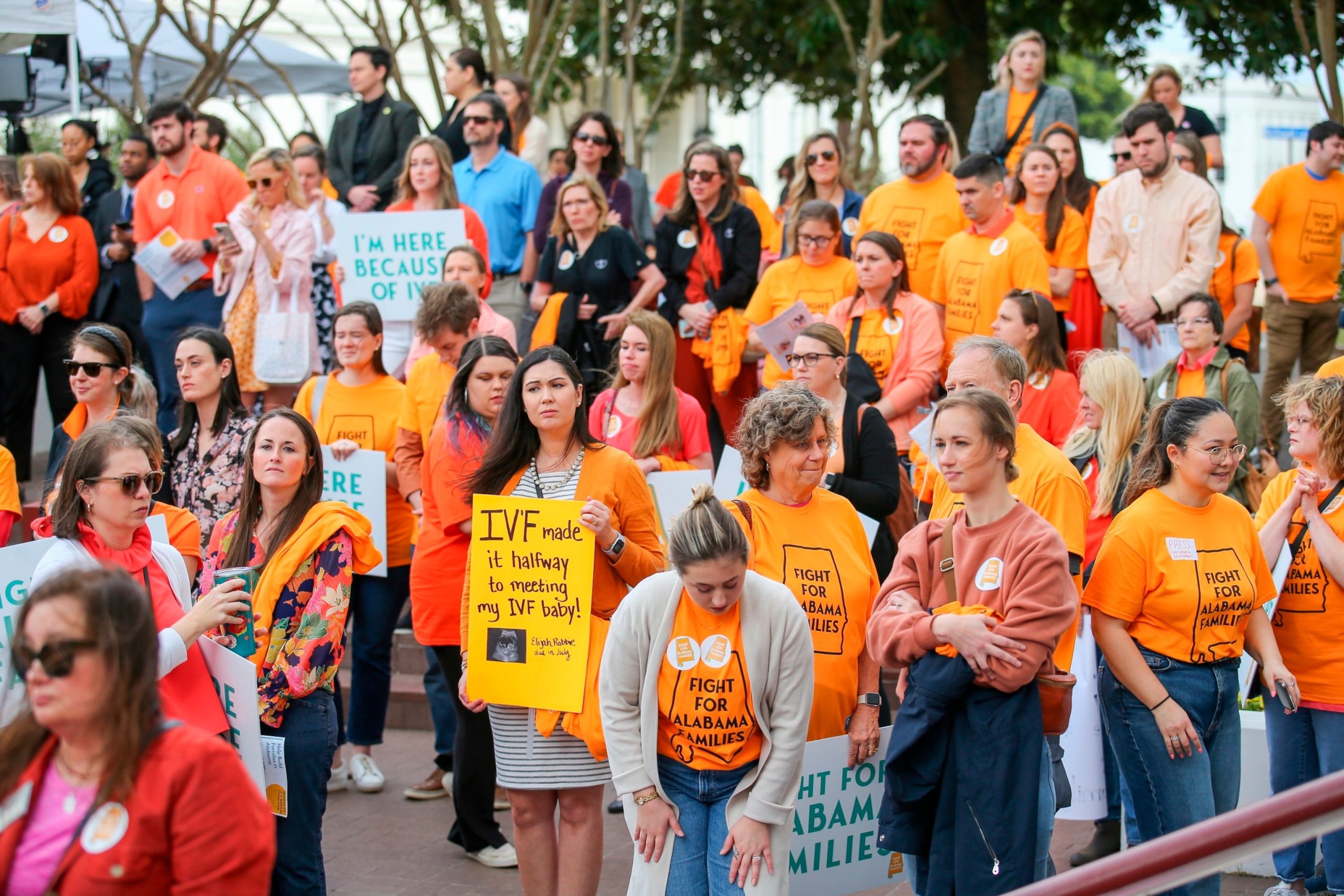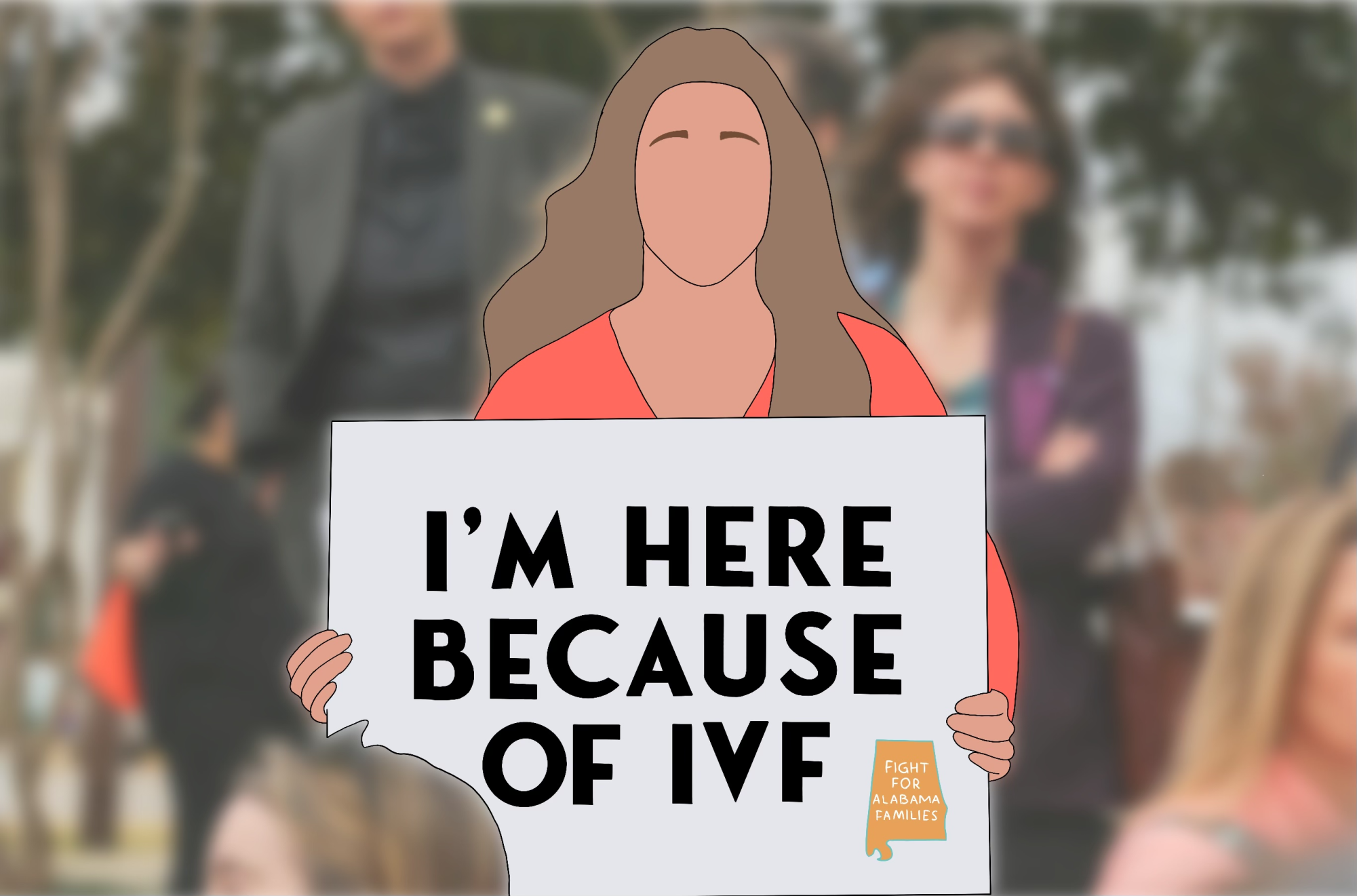
The Hidden World of IVF Costs: What You Need to Know Before You Start
March 24, 2025The Alabama IVF Ruling: What It Means for Families, Fertility, and the Future
Hey there! If you’ve stumbled across this blog, chances are you’ve heard about the Alabama IVF ruling that’s been making waves since early 2024. It’s a big deal—not just for people in Alabama, but for anyone who’s ever dreamed of starting a family through in vitro fertilization (IVF). This ruling has flipped the script on how we think about embryos, fertility treatments, and even personal freedom. But what’s really going on behind the headlines? How does it affect everyday people like you and me? And what juicy details—like the quirky hobbies of the key players or the hidden ripple effects—aren’t getting enough airtime?
In this deep dive, we’re going to unpack everything about the Alabama IVF ruling. From the courtroom drama to its real-world impact, we’ll cover the stuff you won’t find in a quick news scroll. Think of this as your ultimate guide—loaded with fresh insights, practical tips, and even some surprising stats that’ll make you go, “Huh, I didn’t know that!” So grab a snack, get comfy, and let’s explore this wild ride together.
What Exactly Is the Alabama IVF Ruling?
Let’s start with the basics. In February 2024, the Alabama Supreme Court dropped a bombshell decision in a case called LePage v. Center for Reproductive Medicine. They ruled that frozen embryos—those tiny clusters of cells created during IVF—are legally considered “children” under Alabama’s Wrongful Death of a Minor Act. This wasn’t some random thought experiment; it came from a real-life mess where a patient accidentally destroyed some embryos at a fertility clinic in Mobile, Alabama, back in 2020. The couples who lost their embryos sued, and the court said, “Yep, those embryos count as kids.”
How Did We Get Here?
Picture this: a guy wanders into a clinic’s embryo storage area, picks up some frozen embryos, and—whoops—drops them on the floor. Sounds like a scene from a bad comedy, right? But for Felicia and Scott Aysenne, along with two other couples, it was a nightmare. They’d spent thousands of dollars and countless emotions banking those embryos for their future kids. When a lower court said they couldn’t sue for wrongful death (because embryos weren’t “children”), they appealed. The Alabama Supreme Court, with its Republican majority, stepped in and flipped the script.
Here’s the kicker: the court leaned hard on a 2018 amendment to Alabama’s constitution that says the state must protect “the sanctity of unborn life.” Chief Justice Tom Parker even sprinkled in some Bible quotes, which raised eyebrows. It’s not every day you see scripture in a legal ruling, but it hints at the personal beliefs driving this decision.
A Peek Behind the Curtain: Who’s Chief Justice Tom Parker?
Ever wonder who’s calling the shots? Chief Justice Tom Parker isn’t just a suit in a robe. This guy’s got a reputation as a hardcore conservative with a passion for history—he’s been known to geek out over old legal texts. Rumor has it he’s also a bit of a gardener in his downtime, tending to roses when he’s not shaping Alabama law. His concurring opinion in the IVF case was a wild ride, mixing theology with legalese. Love him or hate him, he’s a big reason this ruling happened.

Why This Ruling Shook the Fertility World
Okay, so the court said embryos are kids. Why’s that a big deal? Well, it sent shockwaves through Alabama’s fertility clinics faster than you can say “test tube.” Within days, three major IVF providers hit pause on treatments. Why? Because if embryos are legally children, accidentally losing one could mean lawsuits—or worse, criminal charges. Imagine being a doctor who’s just trying to help people have babies, and now you’re sweating over jail time.
The Immediate Fallout
Here’s what went down:
- University of Alabama at Birmingham (UAB): The state’s biggest hospital system stopped IVF treatments cold, saying they needed to “evaluate the risk” to patients and staff.
- Center for Reproductive Medicine: The clinic at the heart of the lawsuit shut down IVF services by the end of that week.
- Alabama Fertility Specialists: They paused embryo transfers “for a day or two” to figure things out.
Patients were left scrambling. Take Gabbie Price, a 30-something hopeful mom from Birmingham. She told CNN she felt like her dreams were “on hold” while lawmakers sorted out the mess. “It’s like someone hit pause on my life,” she said. And she’s not alone—about 2% of U.S. pregnancies come from IVF, so this affects a lot of folks.
The Numbers Don’t Lie
Let’s break it down with some stats:
- IVF Cycles in 2021: Over 360,000 nationwide, according to the Society for Assisted Reproductive Technology. That’s triple what it was in 2003!
- Cost of One IVF Round: Between $15,000 and $20,000, per the American Society for Reproductive Medicine. Ouch.
- Embryo Loss: Up to 133 lawsuits were filed between 2009 and 2019 over lost or damaged embryos, says a 2020 study by bioethicist Dov Fox. It’s more common than you’d think.
This ruling didn’t just mess with Alabama—it put a spotlight on how fragile IVF access can be.
How Alabama Lawmakers Scrambled to Fix It
The clinics shutting down wasn’t the end of the story. People freaked out—patients, doctors, even politicians who didn’t see this coming. By March 2024, Alabama’s Republican-led legislature rushed to pass a fix: a new law signed by Governor Kay Ivey that gives IVF providers immunity from lawsuits or prosecution over embryo “damage or death” during treatments.
What the New Law Does (and Doesn’t Do)
Here’s the scoop:
- ✔️ Protects Providers: Clinics and doctors can’t be sued or charged if an embryo doesn’t make it.
- ✔️ Retroactive: It covers stuff that happened before the law, too.
- ❌ Doesn’t Touch Personhood: It sidesteps the whole “are embryos kids?” question, leaving that hot potato for another day.
Dr. Beth Malizia, a fertility expert from Alabama Fertility Specialists, told NPR, “This law is a lifeline for us to keep helping families. But it’s not a cure-all—the bigger issue is still lurking.” She’s right. The fix got clinics back in business, but it’s more like a Band-Aid than a solution.
A Hidden Hobby: Governor Kay Ivey’s Secret Love
Fun fact: Governor Kay Ivey, who signed the law, is a bit of a history buff. She’s been spotted at local Civil War reenactments, cheering on the reenactors like a proud grandma. Who knew the woman steering Alabama through this IVF storm had a soft spot for hoop skirts and cannon fire? It’s little quirks like these that remind us—big decisions come from real people.
The Real-Life Impact on Everyday People
This isn’t just a legal debate—it’s personal. Let’s meet some folks caught in the crossfire and see how this ruling flipped their worlds upside down.
Stories from the Ground
- Gabbie’s Journey: Gabbie Price was days away from egg retrieval when her clinic paused. She’s a dog mom to two rescue pups and loves baking sourdough on weekends. Now, she’s wondering if she’ll have to move her embryos out of state—or if she can even afford to.
- The Cancer Survivor: A 39-year-old woman from Illinois (who didn’t share her name) lost her last shot at a biological kid after a faulty IVF solution killed her embryos. She’s a huge sci-fi fan—Star Wars is her jam—and was hoping to raise a little Jedi. Alabama’s ruling made her wonder if more disasters like hers are coming.
- The Surrogacy Hopeful: In Huntsville, a couple planning surrogacy hit a wall. They’re big into board games—think Settlers of Catan marathons—and were saving up for IVF. Now, they’re Googling clinics in Georgia instead.
What Happens to Unused Embryos?
Here’s a question you won’t see in every article: what do you do with extra embryos if they’re legally “kids”? Normally, couples might:
- Freeze them for later.
- Donate them to another family.
- Discard them if they’re done having kids.
But if discarding an embryo could mean “wrongful death,” people are stuck. Imagine paying $1,000 a year to store embryos you’ll never use because you’re scared of breaking the law. That’s a real fear in Alabama right now.
The Bigger Picture: IVF and Reproductive Rights
This ruling isn’t just an Alabama thing—it’s a warning sign for the whole country. Ever since the U.S. Supreme Court overturned Roe v. Wade in 2022, reproductive rights have been a rollercoaster. The Alabama decision ties into a push for “fetal personhood,” where life begins at conception. If that catches on, IVF could be in trouble everywhere.
How It Connects to Abortion
Think of it like this: if an embryo is a person, anything that ends its “life”—like abortion or tossing unused IVF embryos—could be illegal. Bioethicist Ruth Faden from Johns Hopkins told The Hub, “This could be a building block for a national fetal personhood law.” Scary, right? But here’s the twist: even some pro-life folks love IVF because it helps make babies. So, they’re stuck in a weird spot, trying to balance their beliefs with reality.
What Other States Are Doing
Alabama’s not alone. Check this out:
- Florida: A bill to call fetuses “unborn children” stalled after Alabama’s ruling freaked people out.
- California: They’re pushing Senate Bill 729 to make insurance cover more fertility treatments.
- 21 States: Already have laws mandating some IVF coverage, per Mercer’s 2023 survey.
The U.S. is a patchwork of rules, and Alabama just threw a wrench into it.
Digging Deeper: The Science of IVF
Let’s geek out for a sec. How does IVF even work? And why does this ruling mess with it? Here’s the lowdown in plain English.
IVF 101
IVF is like a science fair project for making babies:
- Egg Retrieval: Doctors grab eggs from a woman’s ovaries with a needle. (Sounds intense, but it’s quick!)
- Fertilization: Those eggs meet sperm in a lab dish—boom, embryos.
- Freezing: Extras get frozen in liquid nitrogen tanks at -195°C. They can chill there for years.
- Transfer: One or two embryos go into the uterus, hoping for a pregnancy.
It’s not foolproof—success rates hover around 30-40% per cycle, says the CDC. That’s why people make extra embryos. But if every embryo is a “child,” clinics might only fertilize one egg at a time, jacking up costs and stress.
The Embryo Debate
Scientists say embryos aren’t kids—they’re potential kids. At the frozen stage, they’re just 50-100 cells, smaller than a pinhead. No heartbeat, no brain. But Alabama’s court didn’t care about that—they went with faith over facts. A 2023 study in Fertility and Sterility found 65% of Americans support IVF access, even if they’re pro-life. So, the science and the public aren’t totally on board with this ruling.
Practical Tips: What You Can Do Right Now
Feeling overwhelmed? Don’t worry—I’ve got your back. Whether you’re in Alabama or just watching from afar, here’s how to navigate this mess.
If You’re an IVF Patient in Alabama
- ✔️ Talk to Your Clinic: Ask if they’re back up and running post-law. Most are, but double-check.
- ✔️ Check Your Embryos: Find out where they’re stored and if you can move them out of state if needed.
- ❌ Don’t Panic: The immunity law protects providers for now, so you’re not in legal limbo.
- Budget Tip: Save an extra $1,000-$2,000 in case you need to travel for treatment.
If You’re Planning IVF Elsewhere
- ✔️ Research State Laws: Look up fetal personhood bills in your area. Google “fetal personhood [your state]” for the latest.
- ✔️ Ask About Transport: Some clinics ship embryos across state lines—handy if your state pulls an Alabama.
- ❌ Don’t Skimp on Legal Advice: An ART attorney can explain your rights, especially for surrogacy.
For Everyone Else
- ✔️ Stay Informed: Follow groups like the American Society for Reproductive Medicine on social media for updates.
- ✔️ Support Friends: If someone’s going through IVF, send them a care package—think cozy socks or a funny movie.
- ❌ Don’t Spread Rumors: Stick to facts, not fearmongering posts on X.

The Hidden Costs Nobody Talks About
Here’s where we get into the nitty-gritty that doesn’t always make the headlines. This ruling isn’t just about law—it’s about money, emotions, and weird side effects.
The Financial Hit
IVF’s already pricey, but this could make it worse:
- Storage Fees: $500-$1,000 a year per embryo, says Resolve.org. If you can’t discard them, that adds up.
- Travel Costs: One Alabama couple spent $3,000 to move their embryos to Tennessee, per CNN.
- Insurance Hikes: If clinics face more lawsuits, premiums could rise, and patients might foot the bill.
The Emotional Toll
Imagine this: you’ve got five frozen embryos, but you only want two kids. Now you’re stuck—do you implant them all and risk triplets? Donate them and wonder who’s raising “your” kid? Or pay to freeze them forever? “It’s a mental marathon,” says therapist Dr. Lisa Holloway, who works with IVF patients. “This ruling adds guilt and fear to an already tough process.”
The Wild West of Fertility Clinics
Ever heard of embryo mix-ups? They’re rare but real—like in 2018 when storage tanks failed in Ohio and California, sparking 65% of those 133 lawsuits we mentioned. Alabama’s ruling might make clinics sloppy if they think immunity covers everything. Less oversight could mean more oopsies.
What’s Next for IVF in Alabama (and Beyond)?
So, where do we go from here? The future’s murky, but let’s peek at the possibilities.
Short-Term Predictions
- Clinics Adapt: Most are back online, but they’re triple-checking protocols to avoid slip-ups.
- Legal Challenges: The Alabama Supreme Court denied a rehearing in May 2024, but the U.S. Supreme Court said “no thanks” to an appeal in October 2024. This fight might be over—for now.
- Public Pushback: Rallies like the one in Montgomery on February 28, 2024, show people won’t stay quiet.
Long-Term Vibes
- National Laws: Senator Tammy Duckworth’s IVF protection bill got blocked, but it’s not dead yet. Keep an eye on Congress.
- State Dominoes: If more states copy Alabama, IVF could become a luxury for the rich who can travel.
- Tech Fixes: Some experts are buzzing about “one-egg IVF” to dodge the embryo pile-up. It’s early days, but it’s a thing to watch.
Fun Facts and Quirky Tidbits
Let’s lighten things up with some random goodies you won’t find everywhere.
IVF By the Numbers
- Oldest IVF Mom: A 66-year-old in India had twins in 2008. Wild, right?
- Most Embryos: One couple froze 20 embryos in a single cycle, per a 2022 Human Reproduction study. That’s a record!
- Pet IVF: Yep, it’s a thing—dogs and horses get it too. Alabama’s ruling doesn’t cover Fido, though.
Weird Lawsuit Stories
- Embryo Custody: In 2018, a divorced couple fought over their frozen embryos in Arizona. She won—they were donated.
- Lost in Space: Okay, not really, but a 2019 sci-fi novel imagined IVF embryos on Mars. Maybe Alabama’s next?

Let’s Wrap It Up: Your Voice Matters
Wow, we’ve covered a lot—court rulings, clinic chaos, personal stories, and even some sci-fi vibes. The Alabama IVF ruling isn’t just a blip; it’s a wake-up call about how law, science, and dreams crash into each other. Whether you’re Team IVF, Team Personhood, or just Team “I Want to Understand,” this affects us all.
So, what do you think? Have you or someone you know been hit by this? Drop a comment below—I’d love to hear your story. Or, if you’re shy, hit that share button and spark a chat with your crew. Want more? Sign up for our newsletter for the latest on fertility, rights, and random fun facts. Let’s keep this convo going—because when it comes to building families, every voice counts.
